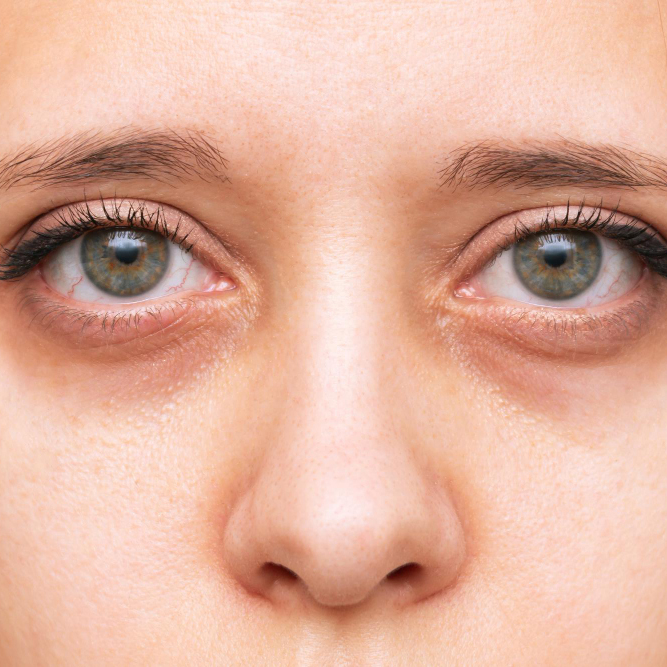Have you ever had the peculiar experience of smelling cigarette smoke when there is no one around smoking? If so, you’re not alone. Many people have reported this phenomenon, and it can be quite puzzling. In this article, we will explore the various meanings behind smelling cigarette smoke when there is none. From paranormal explanations to neurological reasons, we’ll delve into the possible causes and offer some insights into this strange occurrence.
Residual Odors and Sensory Memory
Ever noticed how you can still smell the aroma of dinner lingering long after dinner is done?
That’s because of residual odors, which is when the smell lingers but isn’t strong enough to notice if you didn’t already know it was there. The heat released during cooking increases the volatility of compounds in food.
The same goes for coffee. Ever noticed how you can tell someone had a cup of coffee even if the coffee cup is no longer there?
This is known as sensory memory. Your brain has receptors for each of the five senses—taste, touch, smell, hearing and seeing—and all these receptors send signals to your brain. Just like when you can hear a song still playing in your head long after the song has stopped playing.
These are the same brain cells and pathways that fire when you think about food, smell food and even taste food in your head. That’s why you can almost taste an imaginary lemon.
So when someone smokes a cigarette in an environment and then leaves it, smokers or former smokers can still “smell” cigarette smoke even though they don’t actually see any lit cigarettes around.
If you have ever smelled cigarette smoke indoors but then nobody is around or nobody is smoking cigarettes, then that could be an instance of residual nicotine smoke odor.
As for sensory memory and cigarette smoke, the idea that someone has smoked around you can still be so strong that you can smell cigarette smoke even if there is none present. However, this could be due to personal opinions or past experiences on the topic of smoking.
If you are indoors and you know someone who has smoked previously in that same space, it could cause you to believe that there are cigarettes present again. If this happens often enough, it could be one of the only circumstances when smelling cigarette smoke without any source present could be considered a good reason to believe that it is an olfactory hallucination.
Psychological Factors
It is not at all unusual for psychological conditions to manifest as scent-related hallucinations. In fact, the olfactory bulb, which processes smell, is directly connected to the amygdala and hippocampus. These regions of the brain are responsible for memory, emotions and social responses. It is this connection that means that cigarette smoke hallucinations can often have a psychological origin.
1. Memory Recall: The human sense of smell is closely tied to our recollection of past events. This is why certain scents can evoke memories in a particular way. This connection between smell and memory is more pronounced than all other senses. It’s the reason why so many people remember their grandparents’ homes or their high school crushes when they smell a familiar scent. The phenomenon is called sense memory and it’s why we remember the scents associated with important people and events in our lives. Given this fact, we are predisposed to thinking of individuals when we smell their favorite fragrances. It’s similar to how you might have a friend or family member who only reminds you of a certain song or food.
2. Stress: Many people are unaware that stress can create olfactory hallucinations. Stress-related olfactory hallucinations are sometimes caused by a psychological condition known as Generalized Anxiety Disorder (GAD). GAD is an anxiety disorder that causes people to experience “excessive anxiety” or worry for months at a time. Some symptoms of generalized anxiety disorder include worrying excessively about regular life events and suffering from physical symptoms like headaches and stomach pains in response to stress.
3. Delusions: According to Psychiatric Times, olfactory hallucinations are often tied to delusions in some way. Some common types of delusions include grandiosity, jealousy and paranoia.
Individuals with delusions of jealousy may think that their partners are being unfaithful. This type of delusion often causes individuals to interpret things in their environment in such a way that aligns with their jealousy-fueled beliefs. For example, an individual with delusions of jealousy may misinterpret an innocent conversation their partner has with someone else as evidence that they’re being unfaithful.
4. Hyperosmia: Hyperosmia is a neurological disorder that is characterized by an abnormal sensitivity to odors. The disorder affects the way the brain processes various scents, which is what leads to the heightened sensitivity.
There are many possible triggers for cigarette smoke smelling odors if there’s no one around smoking. And while this can be unsettling, it’s rarely caused by something sinister or supernatural.
Paranormal Explanations
As much as we’d all like to believe that we have a ghostly houseguest in our midst, there are some scientific explanations to keep in mind.
However, there are also a number of ways that those we miss can communicate with us, including through our sense of smell. Their energy may be so strong that it causes us to smell something incongruent with our surroundings simply because they are trying to reach us on the spiritual plane.
Love is a powerful force and so are those who have passed on. If you feel comfortable doing so, try asking the entity in your space what it is that they need or want from you. In some cases, they may be trying to protect you from something outside of your spiritual well-being. In others, they may be more lost than you are and in need of help moving on.
If you smell cigarette smoke and have ruled out all other possibilities for why it’s happening, then you might just be dealing with an apparition who is fond of cigarettes.
Negative Energy
If you’ve ever watched or read a ghost story, then you’ve likely heard the phrase “negative energies”. But this phrase isn’t just something that came from the imagination of authors; in fact, negative energy is a concept that has been around for thousands of years.
Although it’s not tangible, negative energy is just as real as positive energy. In fact, it can be even more powerful than its counterpart because it can build and build over time until it becomes impossible to contain.
If this energy grows strong enough, then it can definitely affect those who enter into that space. This could lead to some residual symptoms like nausea or even smelling cigarette smoke when there are no cigarettes around.
The best way to get rid of this type of energy is to use tools like sage to cleanse your space. This is also called smudging and is a ritual that has been passed down for generations.
Neurological Conditions
In rare cases, a smell that isn’t really there can be an indicator of a serious health condition. There are many ways that brain injury and other health conditions can cause these kinds of hallucinations, and it’s easy to jump to the conclusion that there’s something serious going on when you smell cigarette smoke but no one is actually smoking.
There are a number of neurological conditions that can cause phantom smells, but they often have other symptoms as well. If you’re experiencing an odor that no one else is and also have one or more other unusual symptoms, your healthcare provider may refer you to a neurologist. The neurologist may decide to order an MRI or CT scan and/or run some other tests to try and find the cause of your symptoms.
A few conditions that may cause phantom smells include:
- Parkinson’s disease
- Multiple sclerosis (MS)
- Epilepsy
- Brain tumors
- Parkinson’s disease
- Viral infections that affect the nervous system
- Dementia
- Stroke
If you’re experiencing phantom cigarette smoke smell along with other symptoms, consider speaking with your healthcare provider. They will be able to guide you in the right direction and ensure you get any testing or care that you need.
False Memory and Imagination
Though it might not feel this way, when you’re smelling cigarette smoke that isn’t there, it’s not because you’re imagining it. Many people notice this smell regularly and they’re certainly not inventing it. But that doesn’t mean that your mind doesn’t play a role in the experience.
There are rare instances where doctors find nothing medically wrong with a patient who is consistently smelling cigarette smoke in non-smoking environments. So what gives? According to Healthline, this sensation often comes from of a mix of false memory and imagination.
In the simplest of terms, false memory is a cognitive distortion that causes a person to recall something falsely. In an article on the topic, Harvard Medical School says these faulty recollections can be full memories or perceptions of specific attributes of an event. When you smell cigarette smoke without a source, that’s likely your brain’s way of creating a false memory.
Now that we understand false memories, let’s talk about our imagination. As defined by the American Psychological Association, imagination is “the ability to conceive the unreal.” While we commonly think of imagination as reserved for artwork and stories, they also apply to our perceptions of reality. When our minds smell cigarette smoke in non-smoking environments, those sensations are figments of our imagination.
The combination of the two makes an uncanny olfactory illusion. And according to Healthline, these false smells occur more frequently when we are paying attention to other things or when we’re feeling stressed or anxious.
No matter how healthy you are, your mind is capable of constructing alternate realities when it feels overwhelmed. For example, if you’ve lived through a traumatic event such as house fire or have some other negative association with cigarette smoke, your brain might create false memories and lead you toward imagining the smell as a coping mechanism. If that’s the case for you, working through the trauma with a mental health professional could alleviate these experiences.
Sensory Cross Activation
Certain people report tasting chocolate when they hear the word “January”. Others see squares of color in response to the sounds of birds chirping.
These associations between sensory experiences are known as synesthesia, which is a neurological phenomenon.
It happens when certain regions of the brain are hyperconnected, leading to atypical experiences. While synesthesia is a rare condition, recent research suggests that it might be more common than we think. It’s also possible that synesthesia might manifest itself in more subtle symptoms.
In this study, researchers asked participants questions like “how often does the letter A remind you of the color red?” The results have led them to conclude that as many as 1 in 5 people are synesthetes in some form.
So how does synesthesia and cigarette smoke sensitivity overlap?
Some people who experience phantom cigarette smells can also have other sensory cross-activations. For example, you might experience a metallic taste in your mouth whenever you encounter certain textures.
The underlying mechanism for both synesthesia and phantom smells is currently unknown. But there are some theories out there that might provide some answers.
In one theory, hyperconnected regions can cause heightened activity in other regions. Some researchers believe this could lead to more vivid sensory experiences, including phantom smells.
People who have experienced trauma might be more likely to have cross-activations and heightened sensory experiences. That’s because traumatic memories and experiences can lead to hyperconnected neural circuits.
While this research is still in its early stages, it’s clear that our senses can be more closely connected than we think. Going back to the example of phantom cigarette smells, it’s possible that a heightened sense of taste can also make you more sensitive to smell triggers. This could explain why some people have had experiences with both.
Environmental Triggers
Certain plants can emit a smell similar to burning rubber, so they may be to blame if you smell cigarette smoke even when no one is around.
Toxins from certain plants, like Lantana camara and Carissa macrocarpa, can emit chemicals that are strikingly similar to burnt rubber and cigarette smoke. This is why you could be convinced that someone nearby is smoking a cigar or cigarette.
Some of the toxins that these plants emit include:
- 3,6-Dihydroxy-4-methoxy-3,7-dimethyl-1,5-octadiene (DMDO) – This toxin can smell like burnt rubber. It is found in the roots and stems of the Lantana camara plant.
- Methyl salicylate and butanoic acid – These toxins can smell like wintergreen or mint. They are emitted by the roots of certain species in the Carissa macrocarpa genus.
Certain types of bacterial growths and mold can also produce a musty smell that’s almost identical to cigarette smoke. They may grow on walls, upholstery and even curtains in places where ventilation is poor and there are traces of moisture. In such instances, the source of the smell will be in an enclosed space.
Leaving your air conditioner or heater off for an extended period of time can also cause a mildewy smell in your car or home. If you live near the coast, there are certain types of algae that release a scent that’s similar to sewer or rotten egg gas. The intensity of the odor will depend on how much algae is present in the water and how much wind there is to carry it to your area.
How to Remove Odors from Environmental Triggers
Dust common areas as often as needed to avoid buildup, especially if you have pets or kids. This can keep your home smelling fresh and prevent odors from developing after long absences. If you have any tobacco residue or ashtrays from your old smoking habit, you should clean those out before it leaves your clean home smelling foul.
Knowing how to get rid of bad smells can also be very helpful. Sprinkling baking soda on carpets and upholstery can absorb moisture and odor from the air. You can sprinkle some on before vacuuming your home for a fresher scent overall.
Psychosomatic Response
According to the American Psychological Association, psychosomatic illnesses originate from emotional stress. This happens when the body responds to stress or depression through physical symptoms.
11. Emotional Distress
Psychosomatic symptoms have long baffled doctors and scientists. As a result, many are skeptical of these phenomena. But strong scientific evidence supports the idea that our mental state directly impacts physical symptoms.
So what does this mean for smelling cigarette smoke when there is none around? Again, this isn’t something anyone can diagnose over the internet. But sudden appearances of phantom cigarette smoke may be a sign you need to take stock of your emotions.
It’s not hard to find stories online of people who started smelling cigarette smoke out of nowhere and were shocked to find no visible cause. Not only do these stories highlight how often this happens, they show how surprised people are when they experience it.
If you have a sudden, inexplicable encounter with phantom cigarette smoke, don’t ignore it. It could be your body’s way of telling you that now is a good time to start checking in with yourself.
Start with a simple wellness practice. Many mental health professionals recommend mindfulness—intentionally paying attention to the present moment—as a great way to lower stress. This can help you quickly and easily bring yourself back into balance.
If you’re able to carry these practices through your days, you’ll see a significant improvement in your overall emotional state. This will reduce those psychosomatic symptoms, including perception of smells such as cigarette smoke.
But remember that we can all use some extra help. If you’re currently experiencing ongoing emotional distress, don’t be afraid to reach out to a professional for guidance.
If you’re comfortable doing so, consider reaching out to anyone close to you who can offer emotional support. Social ties—family members, friends, coworkers—are incredibly important for maintaining mental wellness.
In conclusion, smelling cigarette smoke when there is no source can be a perplexing experience. While it may have a simple explanation such as residual odors or sensory memory, it can also be attributed to more complex factors like paranormal activity or neurological conditions. Whatever the cause, it’s important to remember that our senses can sometimes play tricks on us. If you frequently encounter this phenomenon and it concerns you, it may be worth consulting a medical professional to rule out any underlying health issues. Ultimately, the exact meaning behind smelling cigarette smoke when there is none remains a mystery, leaving us to ponder the possibilities.












